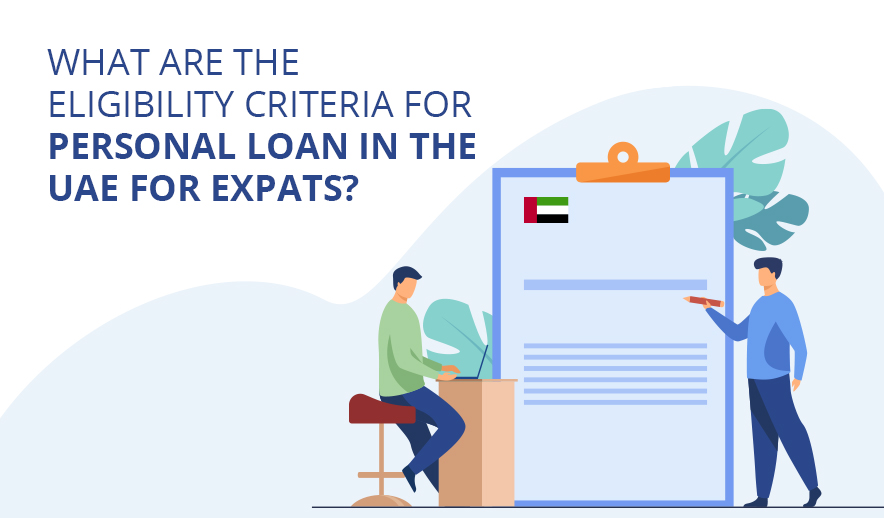
What are the Eligibility Criteria for Personal Loan in the UAE for Expats?

Banks in UAE offer two types of personal loans to expats – personal loans without salary transfer and personal loans with salary transfer.
Personal Loan Without Salary Transfer: Personal loan in UAE without salary transfer provides the loan applicant to apply for a personal loan without having to transfer their salary into a particular bank account. Citibank, FAB or some banks offering loans without salary transfer.
Personal Loan With Salary Transfer: Personal loan in UAE with salary transfer rewards the loan applicant to maintain an account with the bank by transferring their salary into it every month. ENBD, Mashreq, FAB and Citibank are some popular salary transfer loans in the market.
One must always opt for loan with a salary transfer as these loans carry an attractive interest rate compared to the ones without a salary transfer. In general, a personal loan without a salary transfer is opted by those who either do not have their company listed by the banks for a salary transfer loan or for those who are looking for a second loan.
Eligibility Criteria for Personal Loan in UAE for Expats
Eligibility criteria differ from bank to bank based on the applicant’s profile. Here are some of the basic eligibility requirements for a personal loan in UAE for expats:
Minimum Income: Banks in UAE have different requirements for the minimum monthly income of expats for personal loans. While the minimum requirement is AED 5000 fixed salary per month, most of the banks have their entry level criteria ranging from AED 7000 per month. The higher the income the better are the options.
Employment Status & Listed Company: This applies to salaried individuals. While some banks give approval with company listings, some banks in UAE require expats to be employed in their listed companies. Listed companies are those which have been categorized or scrutinized by the banks as companies eligible for such a Salary transfer loan for its staff. The listing is basically done on the company credibility such as years in business, number of employees, setup and other factors.
Salary Transfer: Some banks in UAE require salary transfers for personal loan approval.
Age: The maximum age of applicants is 60 and the minimum age is 21 for applying for a personal loan in UAE.
Documents: The applicants are required to provide the following documents to apply for a personal loan:
For Identification of the Expats:
- Copy and Original Emirates Identity Card
- Resident Visa proof
- Address proof (for example utility bill)
- Security Cheque (Undated)
For salaried expats:
- Salary transfer letter or salary certificate
- Bank statement of the previous 3 months
For Self-employed Expats:
- Power of attorney
- Memorandum of Association
- Trade license
- Bank statement of the previous 6 months
Credit history – Customers applying for personal loans in UAE should have a good credit score with a good credit history. A good credit report shows that the applicant is eligible to repay the loan. Applicants with high credit score can get preferential interest rates from banks. Minimum Credit Score ( Al Etihad Credit Bureau Score) starts from 651. The better the score the lower the interest rate in general.
Proof of Residency – Almost every bank offers loans for expats but it is difficult to find a bank that can offer personal loans for non-resident expat. Expats can apply for personal loans that can provide residency proof by providing a passport with a valid visa.
Loans for Self-employed Customers: Some of the banks such as RAKbank, ADCB and DIB provide loans to self employed customers. The criteria usually is the years in business, Nature of business and Average Annual Turnover.



